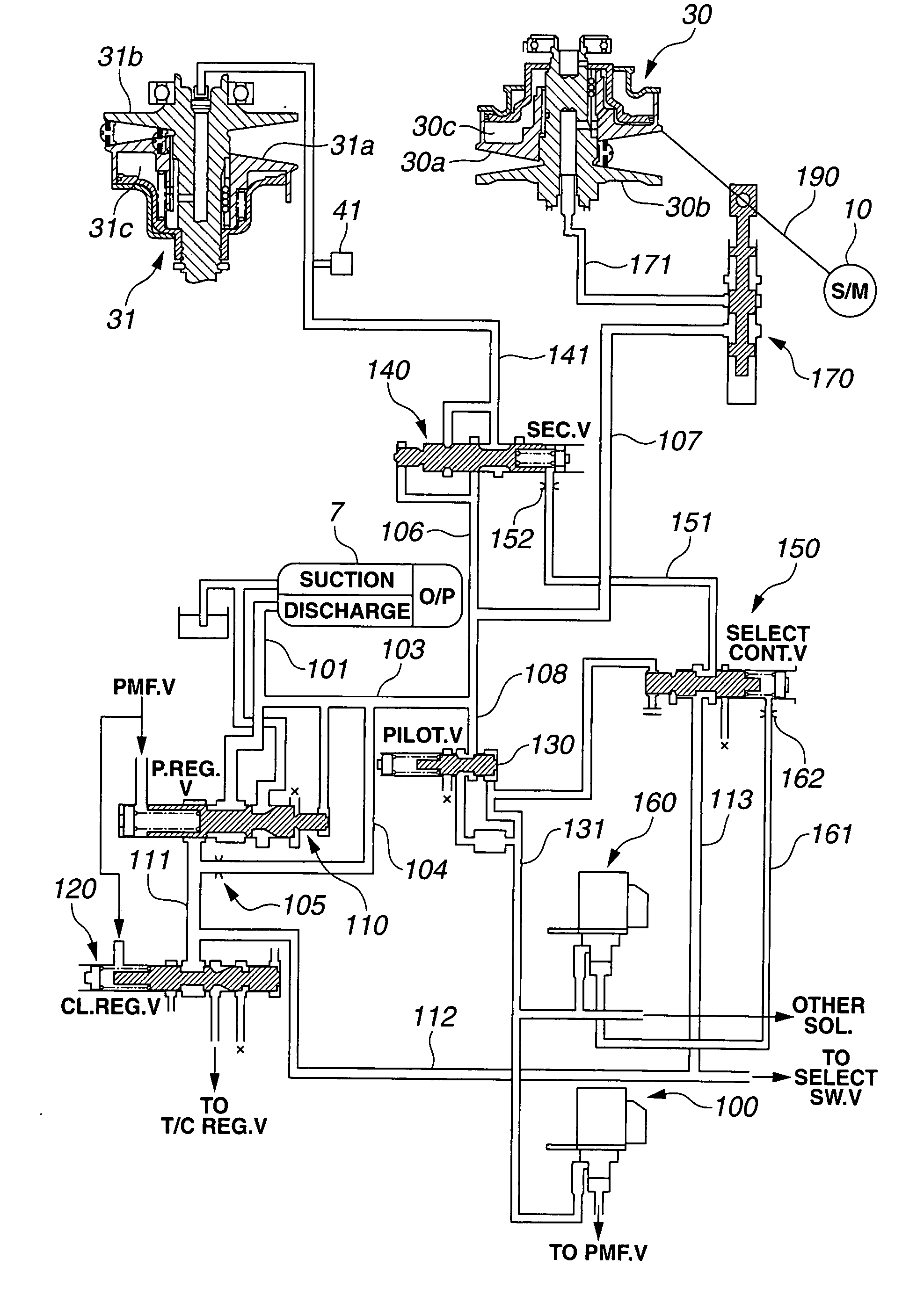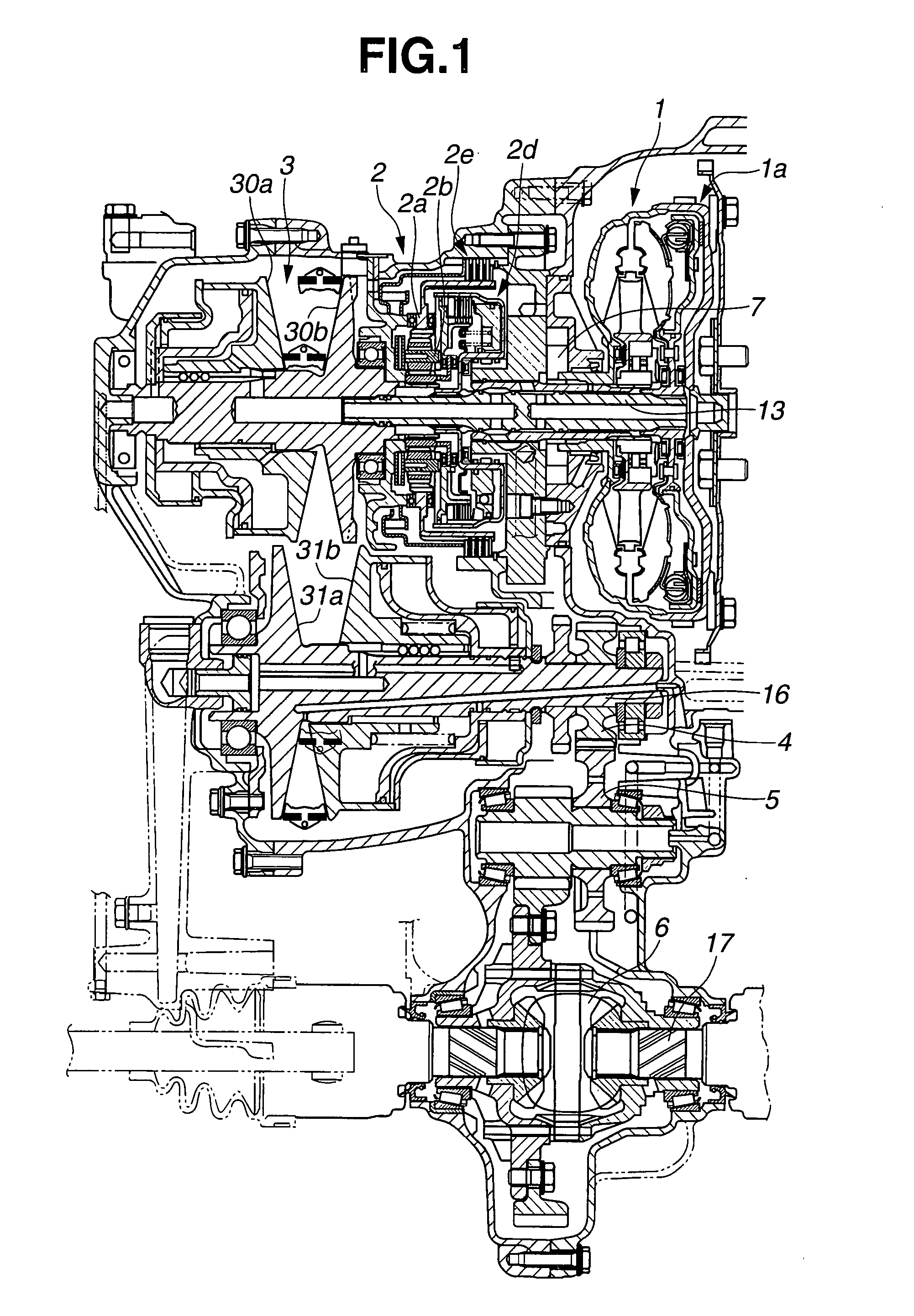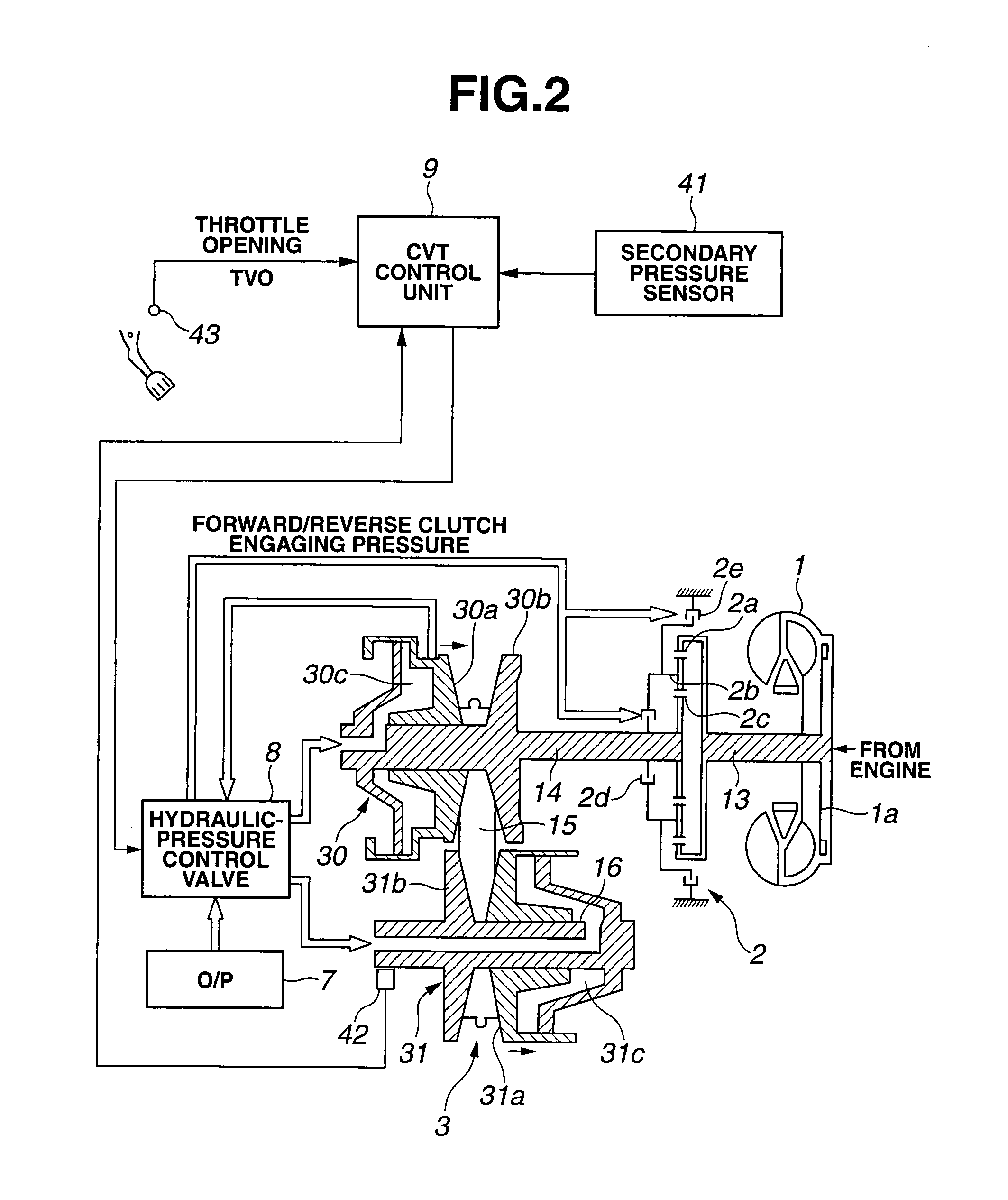Hydraulic control apparatus and method for belt-type continuously-variable transmission
a technology of continuously variable transmission and hydraulic control apparatus, which is applied in the direction of gearing control, belt/chain/gearing, gearing elements, etc., can solve the problem of negative torque transmission effect of band tension difference, and achieve the effect of reducing the margin pressur
- Summary
- Abstract
- Description
- Claims
- Application Information
AI Technical Summary
Benefits of technology
Problems solved by technology
Method used
Image
Examples
first embodiment
[0047] [Schematic Configuration of Automatic Transmission]
[0048]FIG. 1 is a schematic sectional view of an automatic transmission for FF vehicle (front-engine front-drive vehicle) to which a hydraulic control apparatus according to the present invention is applied. FIG. 2 shows a schematic control system of the automatic transmission. The automatic transmission includes a torque converter 1 adapted to increase a torque derived from an engine, a forward / reverse switching mechanism 2 having a starting clutch, a CVT (continuously-variable transmission) 3 adapted to continuously vary a transmission ratio between input and output of the CVT (i.e., adapted to change a transmission ratio in stepless), an idler gear 5 adapted to conduct a speed reduction, and a differential (gear) 6. The automatic transmission further includes an oil pump 7 and a hydraulic control valve unit 8, as a mechanism for supplying hydraulic pressure or lubricating oil to respective units.
[0049] Forward / reverse swi...
second embodiment
[0158] A hydraulic control apparatus for CVT in a second embodiment according to the present invention carries out the transmission-ratio feedback control for line pressure PL, in the similar manner as the first embodiment. However unlike the first embodiment, the hydraulic control apparatus in the second embodiment carries out the transmission-ratio feedback control for line pressure PL, after bringing transmission ratio Ip to target transmission ratio Ip0 by correcting the command signal for step motor 10 when transmission ratio Ip realized (obtained) by the mechanical feedback mechanism has a deviation from target transmission ratio Ip0.
[0159] [Configurations in Second Embodiment]
[0160] Configurations of the automatic transmission and the hydraulic control apparatus in the second embodiment are similar as the first embodiment, except the following points. Line-pressure control section 94 according to the second embodiment outputs a command based on the comparison result of compa...
third embodiment
[0174] A hydraulic control apparatus for CVT in a third embodiment according to the present invention employs so-called both-pressure regulating method in which both of pressure Pp and pressure Ps are adjusted, in the same manner as the first and second embodiments. However unlike the first and second embodiments (step-motor type control) in which primary pressure Pp is adjusted by using the shift control valve connected to the step motor, pressures Pp and Ps are adjusted by using solenoid-controlled shift control valves (direct-acting type control). Namely, a primary valve (PRI.V) 180 and secondary valve (SEC.V) 140 are controlled by command signals for a primary-pressure solenoid 210 and secondary-pressure solenoid 160; and thereby pressures Pp and Ps are adjusted. The predetermined transmission ratio Ip is obtained by varying the balance between pressure Pp and pressure Ps.
[0175] [Configurations in Third Embodiment]
[0176] The automatic transmission and its control system in the ...
PUM
 Login to View More
Login to View More Abstract
Description
Claims
Application Information
 Login to View More
Login to View More - R&D
- Intellectual Property
- Life Sciences
- Materials
- Tech Scout
- Unparalleled Data Quality
- Higher Quality Content
- 60% Fewer Hallucinations
Browse by: Latest US Patents, China's latest patents, Technical Efficacy Thesaurus, Application Domain, Technology Topic, Popular Technical Reports.
© 2025 PatSnap. All rights reserved.Legal|Privacy policy|Modern Slavery Act Transparency Statement|Sitemap|About US| Contact US: help@patsnap.com



